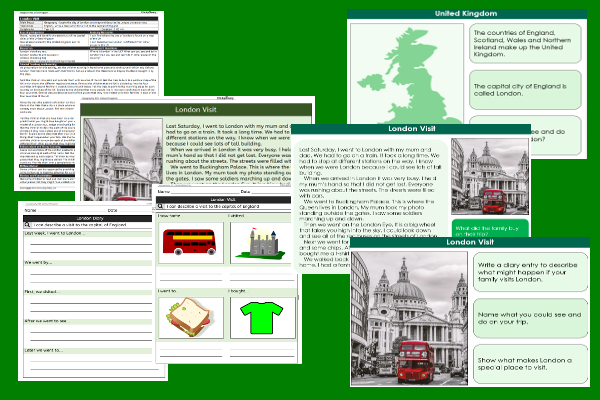Lesson Three – London Visit

This geography teaching pack for Key Stage One gets the children to locate the city of London on a map as the capital city of England and describe its special characteristics.
The class can select and compose a written recount and pictorial storyboard to illustrate what could be seen and experienced when visiting London on a family holiday.
Download this teaching pack including a lesson plan, classroom activities and an interactive presentation to teach the children to locate the city of London on a map as the capital city of England and describe its special characteristics
Activities in this teaching pack include a shared reading text to identify and describe what could be seen and experienced during a visit to London, and templates to record a written recount about a family holiday to the capital of England and a pictorial storyboard to record information about the visit using pictures and word phrases.
The interactive presentation gets the children to locate the city of London as the capital of the country of England and suggest what makes the location special and distinct from other locations in the UK.
This lesson is part of a geography scheme of work to get the children to Identify the name and location of the four main countries in the UK and describe their matching capital cities and investigate the seas that surround each country. There are teaching activities for shared learning, differentiated worksheets to support independent learning and interactive presentations to introduce concepts and key skills.
-

Garden Numbers
Identify and model some of the different calculation techniques that can be used when adding pairs of single digit numbers
-

Summer Stories
Practise composing and presenting narrative stories with familiar settings to illustrate the events and experiences that could happen during the summer
-

Fraction Numbers
Investigate how to use concrete equipment, diagrams and calculations to identify and record the matching fractions of different numbers
-

Family Holiday Lists
Explore how to compile sentences punctuated using commas to list some of the special things that families can use, complete and experience on a holiday
